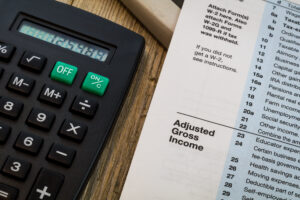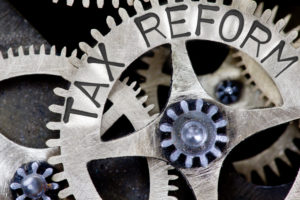The IRS Is Messing with Taxation of Unemployment Benefits

Show Notes:
1) The IRS is messing with taxation of unemployment benefits
2) High-Income folks and tax evasion issues
3) Extensions and the rules
4) File for free with income up to $72,000.
Greenstein Rogoff Olsen & Co
rcohen@groco.com
510-797-8661
www.groco.com
1) The IRS is messing with taxation of unemployment benefits
The #IRS will automatically process #tax refunds for individuals who paid #taxes on their unemployment benefits before Congress passed a law making those payments tax-free, IRS Commissioner Chuck Rettig told lawmakers. https://trib.al/8ycM6oa
– A $10,200 per individual unemployment insurance exclusion for the 2020 taxable year, only for households with modified AGI of $150,000 or less. Taxpayers who have already filed returns reporting 100% of their unemployment will need to supersede or amend their returns to get a refund;
https://www.accountingtoday.com/articles/irs-to-automatically-process-refunds-on-jobless-benefit-payments?utm_campaign=accountingtoday-tw&utm_content=socialflow&utm_medium=social&utm_source=twitter
https://www.irs.gov/faqs/irs-procedures/forms-publications/new-exclusion-of-up-to-10200-of-unemployment-compensation
2) High-Income folks and tax evasion issues
High Income Tax Avoidance Far Larger Than Thought
https://www.marketscreener.com/news/latest/High-Income-Tax-Avoidance-Far-Larger-Than-Thought-New-Paper-Estimates–32748559/
3) Extensions and Rules:
https://www.irs.gov/businesses/small-businesses-self-employed/understanding-penalties-and-interest
4) File for free with income up to $72,000:
IRS.gov is always available and has tools to help people file and pay taxes, find information about their account, and get answers to tax questions.
Here are a few things that people can do with a visit to IRS.gov.
File a tax return
Taxpayers who earned $72,000 or less in 2020 can file free using brand-name tax software with IRS Free File. People who earned more and want to do their own taxes can use Free File Fillable Forms. These are the electronic versions of IRS paper forms. Either way, everyone has a free electronic filing option.
The IRS has extended the federal income tax filing due date for individuals for the 2020 tax year from April 15, 2021, to May 17, 2021. Individual taxpayers have until May 17 to file and pay 2020 federal income taxes. If individual taxpayers need more time to file, they can use IRS Free File through May 17 to electronically request an extension to file until Oct. 15. Taxpayers should remember that an extension of time to file is not an extension of time to pay. Penalties and interest may apply to taxes not paid by May 17.
Individual taxpayers can get an extension by paying all or part of their estimated income tax due using Direct Pay, the Electronic Federal Tax Payment System or a credit or debit card, and indicating that the payment is for an extension. This way they won’t have to file a separate extension form and will receive a confirmation number for their records.
Federal Government Takes in Record Tax Haul in 2014
Federal Government Takes in Record Tax Haul in 2014 Three trillion dollars is a lot of money. Just imagine what you could do with $3 trillion. The possibilities are practically limitless. Of course no one is worth $3 trillion, individually. However, the United States Federal Government recently reported that for the 2014 fiscal year it…
Do You Need to File a Federal Income Tax Return
Many people will file a 2013 Federal income tax return even though the income on the return was below the filing requirement. The questions below will help you determine if you need to file a Federal Income Tax return or if you need to stop your withholding so you will not have to file an…
Will True Tax Reform Happen in Our Lifetime?
Will True Tax Reform Happen in Our Lifetime? Will explorers ever truly discover the Fountain of Youth? Will the Cubs ever win the World Series? Will Elvis ever be found alive? There are so many questions that might not ever be answered in our lifetime. Here’s another one: will we ever see true tax reform…
Bookkeeping: What Kind of Records Should I Keep?
Bookkeeping: What Kind of Records Should I Keep? You may choose any recordkeeping system suited to your business that clearly shows your income and expenses. Except in a few cases, the law does not require any special kind of records. However, the business you are in affects the type of records you need to keep…




